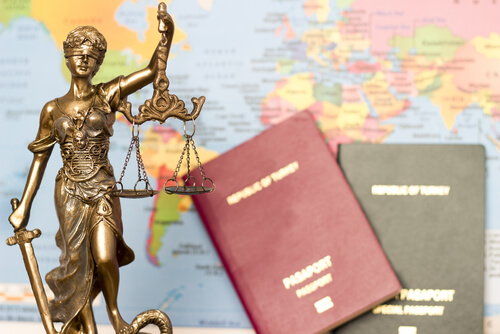Enforcing a foreign judgment can be a daunting task, especially when the legal system of a country is vastly different from the legal system of another country. It’s not uncommon for multinational companies, business owners, or individuals to encounter a situation where they have to enforce a judgment order passed in a foreign land. It’s when they realize that enforcing a foreign judgment is not a walk in the park. However, with the right approach, knowledge, and legal guidance, enforcing a foreign judgment can be a challenging yet manageable task.
Understand the Legal System of the Country
The legal system of a country plays a crucial role in enforcing a foreign judgment. Each country has its legal system, and the process of enforcing such judgment differs from one country to another. To enforce an international judgment, it’s essential to understand the legal framework and how the legal system in the country works. It’s crucial to identify the legal provisions and procedural requirements to enforce this type of judgment.
Hire a Local Attorney
Enforcing a foreign judgment can be tricky and complex, especially when dealing with different legal systems. To tackle this challenge, it’s better to hire a local attorney who has experience in dealing with enforcement. A local attorney can provide legal guidance, explain the legal procedures, and help deal with any legal complexities that may arise. A local attorney can expedite the process of enforcing a foreign judgment and guarantee its legal and efficient execution.
Navigating the Complexities of Foreign Judgment Enforcement
Precedents play a crucial role in enforcing an international judgment. The laws of a country are often influenced by decisions made in previous cases. A legal precedent is a judgment or decision made in a similar case before; it can be used as a reference point while dealing with a foreign judgment. Researching legal precedents can provide a better understanding of how to tackle the challenge of enforcing a such judgment.
Identify Assets
To enforce an international judgment, it’s essential to identify the assets that the party against whom the judgment was given owns in the country. Assets such as real estate, bank accounts, assets, and intellectual property can be seized once the judgment is enforced. It’s important to identify the assets and ensure that the process is carried out lawfully. Generally, skip tracing is used to identify these assets to seize them.
Follow Legal Procedures
Enforcing a foreign judgment can be a lengthy and complicated process, but it’s important to follow the legal procedures to make the process successful. It’s essential to file documents correctly, meet the deadlines, and follow the legal procedures. Failure to follow the legal procedures can lead to the rejection of the claim. For more information please visit Enforcement of Judgments (state.gov)
Conclusion
Enforcing a foreign judgment can be challenging, but it’s not impossible. With the right approach, knowledge, and legal guidance, it’s possible to enforce a foreign judgment successfully. Understanding the legal system of the country, hiring a local attorney, researching precedents, identifying assets and following legal procedures are the key steps to tackle the challenge of enforcing a foreign judgment. By taking these steps, one can ensure that the process is done legally, efficiently and effectively. Our team has experience in dealing with foreign judgments, please visit International Litigation Attorneys – Transnational Matters


